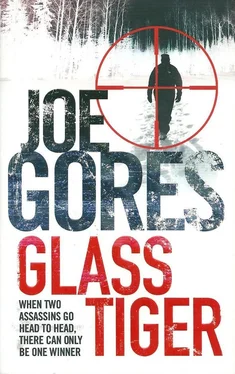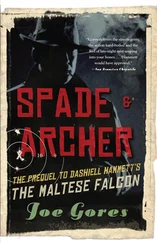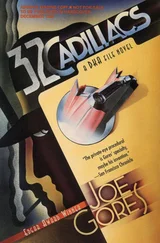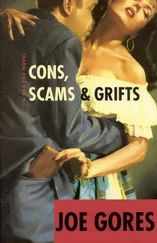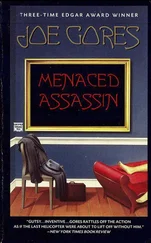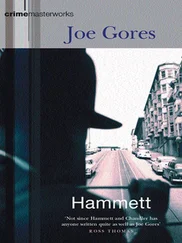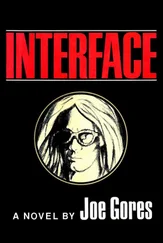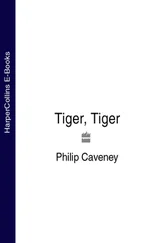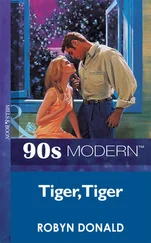‘So is Hal,’ she said. ‘You aren’t.’
With a sort of astonishment, Thorne realized she was right: he had never killed except in self-defense, or as what was his duty. Corwin had been a true mercenary, no matter what he was now. It made a difference somehow.
They got into the Trooper without speaking further. Neither knew where it was taking them, but they both knew they wanted to go there. To find out. To know.
The long rains had come at last to East Africa’s vast Serengeti plains, almost a month overdue. Just the day before there had been pitiless sun and choking dust over the red land. Then at dawn the heavy, black-bellied clouds began advancing inexorably across the veldt, dropping their hard, straight, unyielding rain.
Morengaru sat on top of an isolated termite mound, his tightly-curled hair uncovered to the pouring rain, his meager clothing plastered to his skin, his shotgun slanted up from between his knees and past the side of his head. Champagne corks rescued from the trash bin at Sikuzuri Safari Camp were stuck in both barrels to keep them from getting scaled with rust inside.
Morengaru walked here every year for the start of the long rains. It was the only miracle he had ever seen and the only one he would ever believe in.
On the flat plain’s furthest horizon a thin line of green appeared, advancing toward him under the blessing of the rain at about the pace of a man very slowly walking. The grasses were racing through the few short weeks of their cycle: renewal, rebirth, replenishment, before the dry season dropped them back into dormancy again. Within days, they would be knee-high, and millions of migratory grazing animals would be spreading out across the green and verdant plains. Behind the grazers would come the inevitable, necessary predators.
Morengaru’s remarkable ears picked up automobile sounds. He stubbornly refused to turn his head from his miracle, but he knew that a four-wheel drive vehicle was approaching across the plains behind him. He listened to it the way a classical music lover listens to a Mozart symphony: with his whole being.
A Land-Rover. He listened even more intently as it drew up behind his anthill. A venerable 1960s Land-Rover, in fact, one of the ancient ones with the canvas top and the short wheelbase. He fought it, but the beginnings of a slow smile made his teeth gleam in his ebony face.
The Land-Rover stopped. When the engine was cut, the rain made a thrumming sound on its stretched canvas top. The engine kachunk-kachunked two or three times before it died. It needed tuning. Had not been driven in a long time. Several months, in fact. In his pocket was a key to it that he had never used.
The doors opened, slammed shut. The sounds of two people getting out, swishing through the wet but still dead grass around the termite mound. Two? He almost turned, but disciplined himself. They climbed up and sat down, one on either side of him. Peripheral vision showed him a man and a woman, wazungu, white people, wearing already-soaking safari jackets and wide-brimmed safari hats tipped back off their heads so the rain could pelt their faces as it did his.
Only then did Morengaru turn from the advancing grasses he had come all this way from Tsavo, afoot, to see. He looked gravely at the woman first. She was in her late twenties, tawny-skinned, shapely, beautiful, with very long gleaming black hair and startling blue eyes. She met his scrutiny unblinking.
He turned to look at the man. He was forty, also black-haired, dark and quick-looking. But also drawn, as if he had been through many things that had seasoned him. The man hooked two bent fingers toward Morengaru’s eyes, then toward his own.
‘Tatuona tena,’ he said solemnly, repeating it from their last meeting. We shall see each other again.
‘Ndio,’ replied Morengaru, equally solemn. Yes. Then he added, ‘Uso kwa uso.’ Face to face.
The woman held out a hand to Morengaru and greeted him. ‘Jambo, bwana.’
Hello, sir. ‘I am Janet Kestrel.’
Morengaru took her hand in both of his and bowed very slightly. ‘Memsa’ab.’ Madam. ‘I am Morengaru.’
Then of one accord, all three of them turned to face the pounding rain and the advancing line of green that they all had come to see. It had deepened, broadened now, from a line on the horizon to cover half the veldt in front of them. For a long time they watched its progress. No one spoke. No one had to.
When the growing grasses had almost reached their termite mound, soon to surround it and pass on, Morengaru stirred and spoke, without turning his head.
‘Since we three landless rogues, maybe we go hunting now.’
They laughed, three people lost in the vastness of the Serengeti plains, drenched by East Africa’s life-giving long rains.
As always, my wife Dori, first in my heart, is first in these acknowledgments. She accompanies me through the endless hours of writing and revision of all of my novels, brilliant and sensitive and tough-minded in her insights and suggestions.
Otto Penzler, the mystery field’s greatest editor, historian, and publisher, who invited me to join his new mystery list at Harcourt. I find myself a pygmy among giants.
Henry Morrison, my agent, who over the years has never ceased to amaze me with his wit and intelligence, his editorial and creative suggestions, his understanding of the publishing field and its dynamics.
My foreign agent, Danny Baror, a bulldog in securing foreign sales for his writers, securing excellent advances, and in protecting our rights in other countries.
Bill Corfitzen, who patiently drove Dori and me all over Washington, D.C. and environs, and gave us an insider’s description of the Department of Commerce cafe and courtyard.
Jane Lepscky, who took us around the Georgetown docks and marina, and who suggested the Alexandria tour boat as a colorful and tricky way to get my man Thorne to and from Old Town.
Several old friends from my years in Kenya, especially John Basinger and Edgar Schmidt, who shared many adventures with me. Also the late Neil Macleod, John Allen, Errol Williams, and Joe Stewart, ex-Headmaster at Kakamega Boys Secondary School. Others embedded in my memory are the real Morengaru, Arthur ‘Squealer’ Kemoli, Elijah Muthengi, Mbalilwa, and Prabatsingh M. Mahidi.
Olga Shezchenko gave me detailed descriptions of the Tuolemne River white-water rafting trips for which she was a singularly skillful guide. Olga also told me the colorful way to build up immunity against poison oak.
Retired Army Colonel William Wood shared detailed knowledge about military tactics, arms, explosives, what snipers face, and the things they must know for their strange and deadly work.
Movie producer Paul Sandburg, for his unflagging delight and enthusiasm for all of my projects, his wisdom about the ways of La La Land, and his suggestions about L. A. locations.
The wonderful staff, especially Theresa McGovern, at the Fairfax Branch of the Marin County Public Library system, for their dedicated pursuit of obscure reference material for me.
All of the people at the Sho-Ka-Wah Indian Casino in Hopland, California, who gave Dori and me access to their operation. Especially the Hopland Tribal Council; Sho-Ka-Wah’s general manager, Don Trimble; the Sergeant of Security for the day shift, Mike Hatfield; and Herb, the security man who took us around.
Warf the Klingon, for insider information on outlaw bikers and the Harley cult.
Last, but not least, the good folks at Whiskey River in Oakdale, California, for good drinks and good talk and truly funny barroom jokes over a long Thanksgiving weekend.
